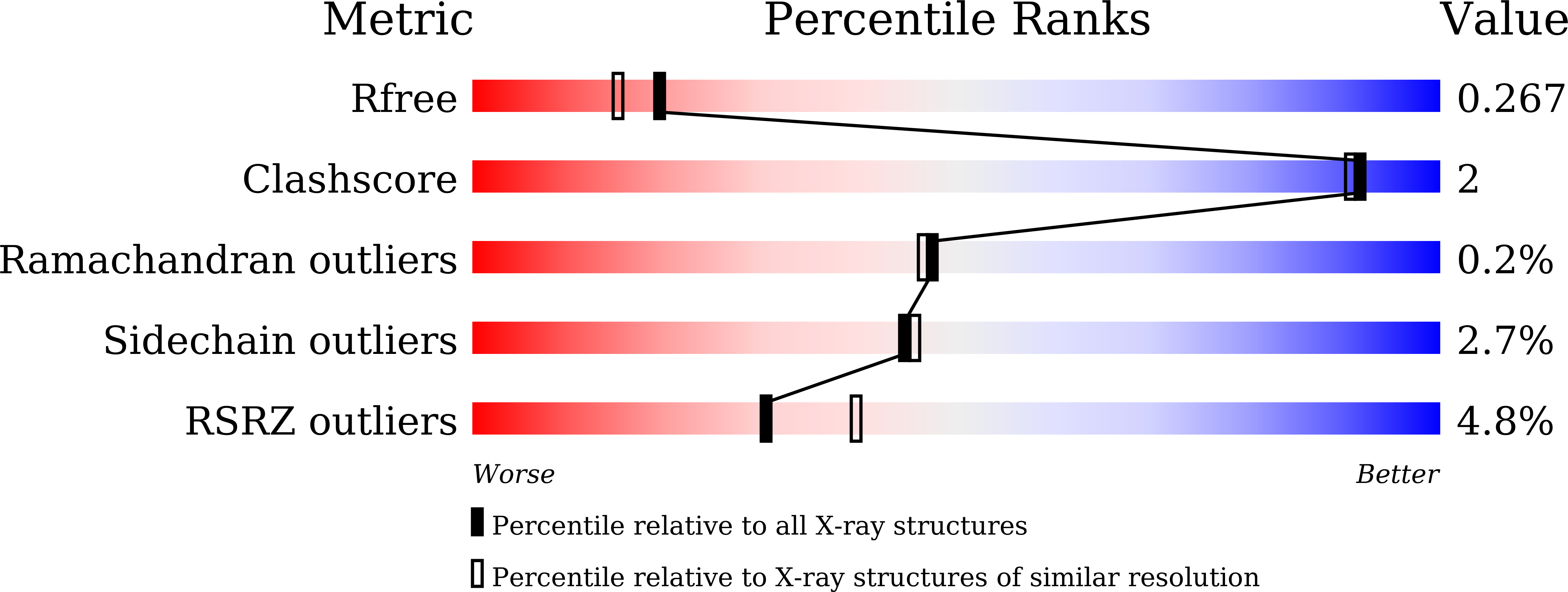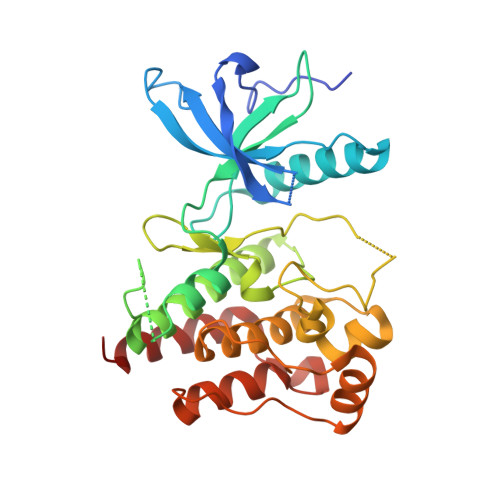The fibroblast growth factor receptor genetic status as a potential predictor of the sensitivity to CH5183284/Debio 1347, a novel selective FGFR inhibitor
Nakanishi, Y., Akiyama, N., Tsukaguchi, T., Fujii, T., Sakata, K., Sase, H., Isobe, T., Morikami, K., Shindoh, H., Mio, T., Ebiike, H., Taka, N., Aoki, Y., Ishii, N.(2014) Mol Cancer Ther 13: 2547-2558
- PubMed: 25169980
- DOI: https://doi.org/10.1158/1535-7163.MCT-14-0248
- Primary Citation of Related Structures:
5B7V - PubMed Abstract:
The FGF receptors (FGFR) are tyrosine kinases that are constitutively activated in a subset of tumors by genetic alterations such as gene amplifications, point mutations, or chromosomal translocations/rearrangements. Recently, small-molecule inhibitors that can inhibit the FGFR family as well as the VEGF receptor (VEGFR) or platelet-derived growth factor receptor (PDGFR) family displayed clinical benefits in cohorts of patients with FGFR genetic alterations. However, to achieve more potent and prolonged activity in such populations, a selective FGFR inhibitor is still needed. Here, we report the identification of CH5183284/Debio 1347, a selective and orally available FGFR1, FGFR2, and FGFR3 inhibitor that has a unique chemical scaffold. By interacting with unique residues in the ATP-binding site of FGFR1, FGFR2, or FGFR3, CH5183284/Debio 1347 selectively inhibits FGFR1, FGFR2, and FGFR3 but does not inhibit kinase insert domain receptor (KDR) or other kinases. Consistent with its high selectivity for FGFR enzymes, CH5183284/Debio 1347 displayed preferential antitumor activity against cancer cells with various FGFR genetic alterations in a panel of 327 cancer cell lines and in xenograft models. Because of its unique binding mode, CH5183284/Debio 1347 can inhibit FGFR2 harboring one type of the gatekeeper mutation that causes resistance to other FGFR inhibitors and block FGFR2 V564F-driven tumor growth. CH5183284/Debio 1347 is under clinical investigation for the treatment of patients harboring FGFR genetic alterations.
Organizational Affiliation:
Research Division, Chugai Pharmaceutical Co., Ltd., Kamakura, Kanagawa, Japan. nakanishiyst@chugai-pharm.co.jp.
















